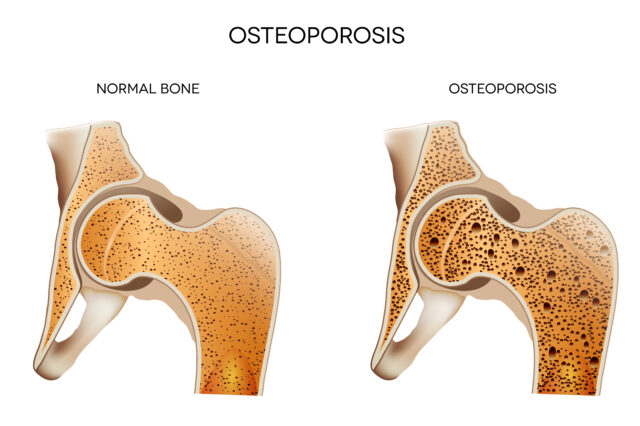Bone health and its importance
Bone health plays a vital role in overall well-being. Bones are both strong and flexible, allowing for
movement and providing protection for vital organs. They develop and grow throughout childhood,
experience rapid growth during adolescence, and continue to renew themselves in adulthood
through a process known as “remodelling.” Bones are living tissue. Certain cells, called
osteoclasts, break down old bone, while others, known as osteoblasts, build new bone. This
continuous process is what allows bones to repair themselves after a fracture.
What contributes to poor bone health?
Research has identified several common risk factors that can lead to poor bone health and
increase the likelihood of developing osteoporosis. It’s important for your doctor to assess these
risk factors as part of your overall health evaluation. A bone density scan is the most commonly
used test to help diagnose osteoporosis.
In people with osteoporosis, bones become thinner, less dense, and more fragile due to a loss of
minerals like calcium. As a result, bones are weaker and more prone to fractures — even from
minor bumps, strains, or simple falls. Osteoporotic bones often appear porous and less structurally
sound compared to healthy bone, which is dense and resilient.

Tips for supporting bone health
Keeping your bones strong and healthy involves getting enough calcium, vitamin D, and regular
physical activity. Protein is also important, as it helps build and maintain muscle strength, which
supports an active lifestyle. In addition, certain micronutrients contribute in smaller ways to overall
bone health.
The skeleton
Keeping your bones healthy is essential for staying mobile and independent, especially as you
age. Preventing fractures caused by poor bone health is a key health priority for aging adults.
Osteoporosis can lead to bone breaks in various parts of the skeleton, with common fracture sites
including the wrist, arm, leg, hip, and spine, being debilitating.
Download the Reduce Your Risk of Falls and Fractures printable information.
